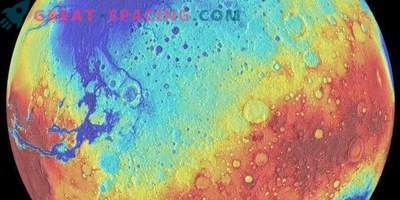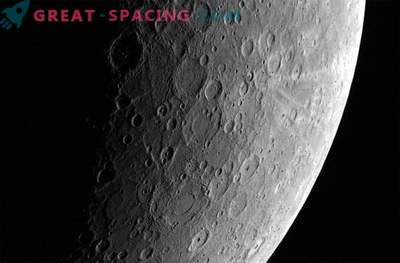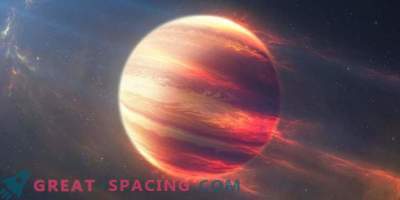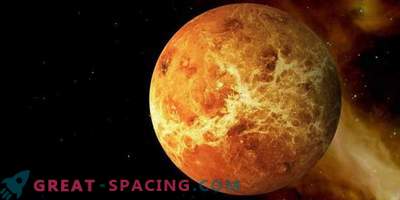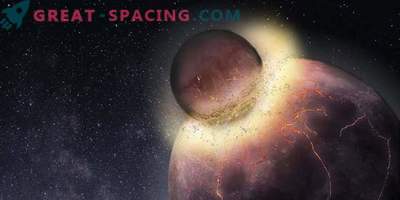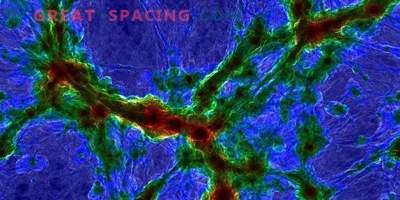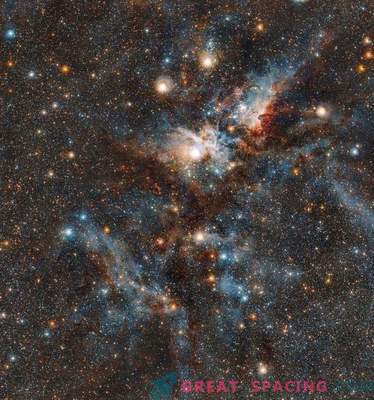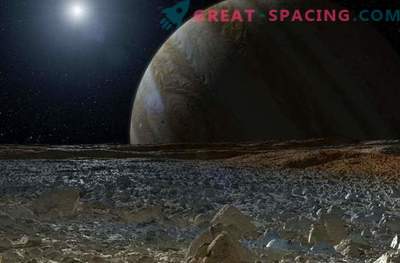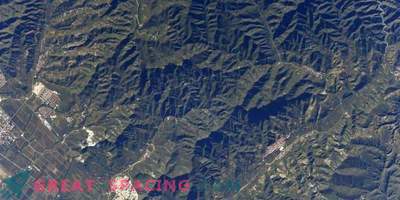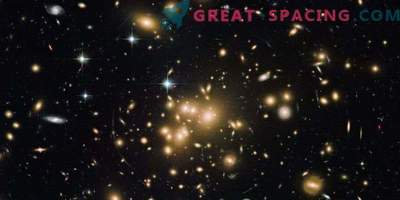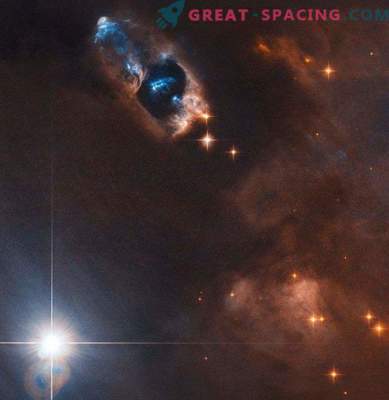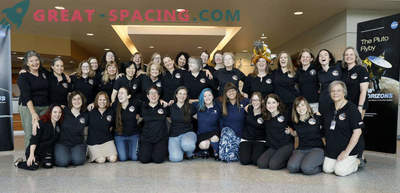
The nearest planet to the Sun, Mercury, plays the role of a real extreme world. This is a planet where the days are longer than a year, and one side is always immersed on a hot day, and the other is freezing from the night cold. In addition, it is one of the least studied planets in the solar system. This is a world of the earth type (rocky), like Earth, Venus and Mars, but in Mercury there is a higher ratio of iron to rock than in others.
For dozens of years, the main theory regarding Mercury said that the planet had received a strong blow in the past, due to which it threw out most of the rocky mantle. However, a new study indicates that the mysterious nature can be the result of numerous collisions with large objects. In the analysis “Formation of Mercury by large-scale impacts”, scientists tried to study various reasons why the planet has a specific density and iron-rock ratio.
Mercury is a planet of the terrestrial type, and therefore is represented by silicate minerals and metals, which are differentiated into an iron core, silicate mantle and crust. But it differs from other worlds in that iron makes up a disproportionately large part.
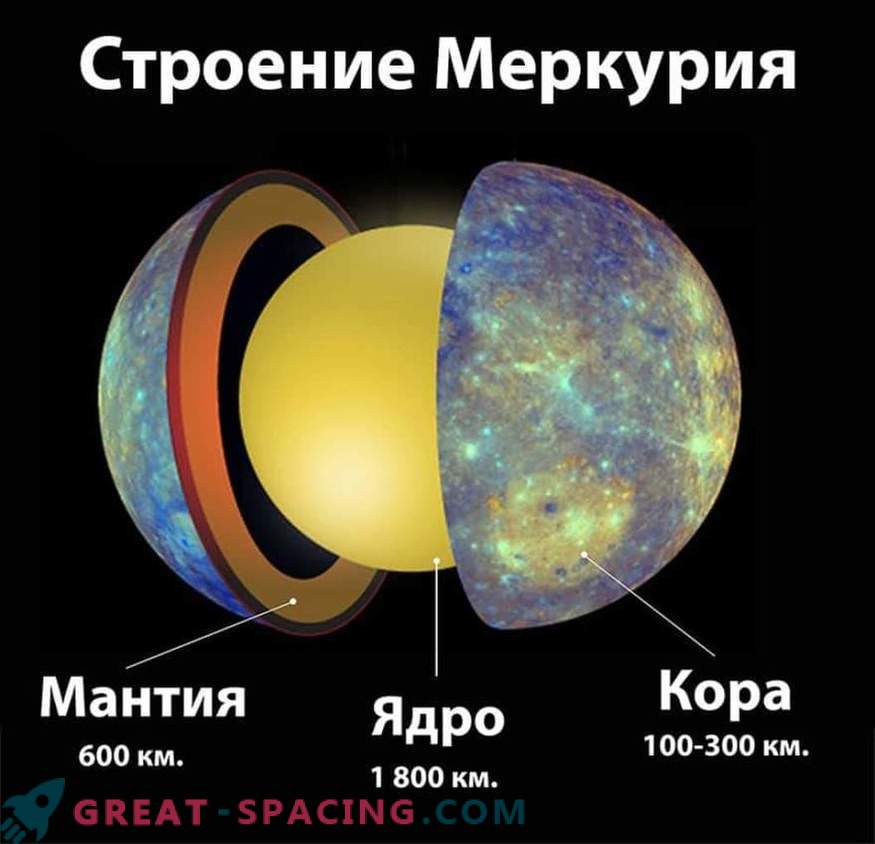
Internal structure of Mercury: bark (100-300 km), mantle (600 km), core (radius - 1800 km)
It is surprising not only that the core is endowed with a higher iron content than in any other large planet of our system, but also covers about 47% of the whole world (17% for the Earth). The reason remains a mystery. There are many theories, but there are two most likely. Mercury could initially receive such a large iron core in the period of the presence of a disk in the solar nebula. The second possibility is that the planet is located close to the star, which means that some mechanisms could influence more efficiently in the separation of metals and rocks, where the first ones plunged inside and the rock went outside. Due to further evaporation or impact, the world lost part of its mantle in the later stages of formation.
The second option is more popular. Based on this assumption, the researchers studied the standard parameters of the collision and considered the likely composition of the drummer and how this will affect the further development of Mercury.
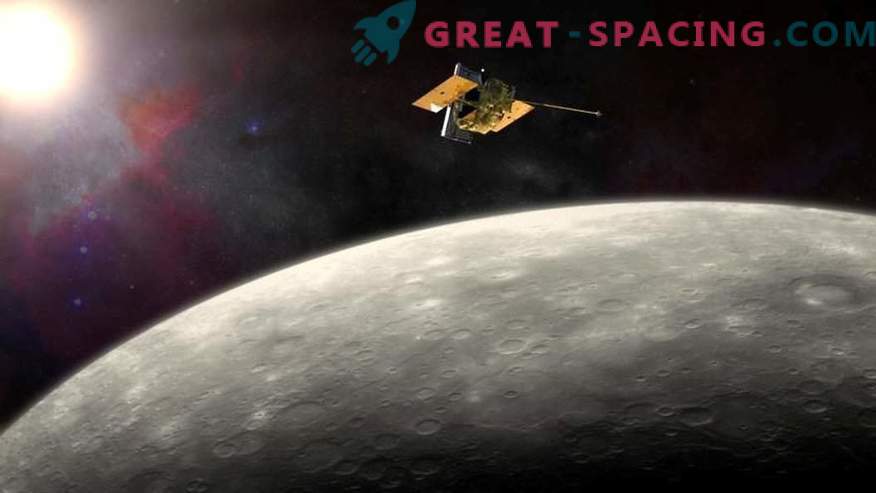
Artistic vision of the MESSENGER spacecraft orbiting Mercury (the planet nearest the Sun)
The goal was to understand the composition of the Mercury was the result of one giant blow or several small ones. Both possibilities are rare and require unique conditions, but scientists have determined that the blows can explain the curious nature of the planet. Conclusions include 5 points:
- A single strike or series requires a carefully tuned force and speed parameter to produce a mass of mercury and iron. In the second case, more features are presented.
- The composition of the drummer affects the final mass and distribution of iron.
- The state of Mercury before impact affects the final mass.
- A multi-strike scenario avoids the need for fine tuning of geometric parameters, but is limited by time and surface-rich volatile substances.
- The formation of Mercury with one stroke is possible, but it is a difficult process.
In general, it turns out that both options can explain the high level of iron and domination over the rock, but the probability that they occurred is small. This is explained by the fact that it was possible to find several analog mercury exoplanets. Perhaps Mercury can be considered a rare event in the evolution of star systems.
Large-scale attacks may be considered as successful events and a reminder of how chaotic are the planetary systems. Recall that, according to the most popular theory, the Moon was also formed after a strong impact of the Earth with an unknown large celestial body. Our system can be unique in many ways (presence of life, large blows). But we just opened the doors to other worlds, so the researchers do not give up and continue to look for answers.

